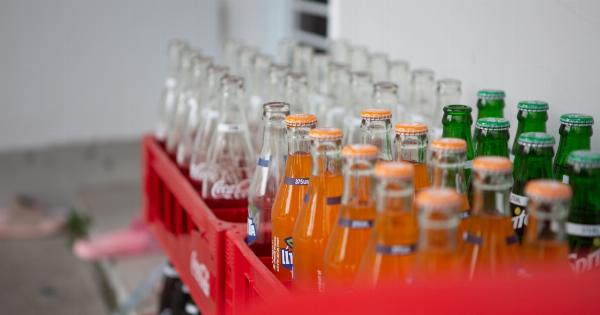Soda, also known as soft drinks or fizzy drinks, is a popular beverage consumed by millions of people across the globe. However, research indicates that consuming soda regularly may increase the risk of death.
Several studies have shown that high intake of sugary beverages like soda may be linked to various health problems, including obesity, diabetes, and heart disease.
What is soda?
Soda or soft drinks are carbonated beverages that contain high amounts of sugar and caffeine. They are commonly consumed by people of all ages and are available in many flavors and varieties, such as cola, lemon-lime, orange, ginger ale, and root beer.
Soda is famous for its refreshing taste and ability to give an instant energy boost, but they have become a concerning beverage due to their unhealthy side effects.
How does consuming soda increase the risk of death?
According to various studies, consuming soda regularly can be harmful to health, leading to an increased risk of death.
Soda contains a high amount of sugar, which can cause weight gain and obesity, leading to an increased risk of chronic diseases such as diabetes, heart disease, and even certain cancers. Moreover, soda consumption can lead to an increase in blood pressure, which can also increase the risk of heart disease.
Obesity
Obesity is a severe problem that affects millions of people globally. Studies have shown that regular soda consumption is one of the leading causes of obesity.
Soda contains high levels of sugar and calories, which can cause weight gain and obesity over time. People who consume more than one sugary beverage per day have a 26% higher risk of developing obesity than those who consume sugary drinks less frequently.
Obesity can lead to various chronic diseases such as diabetes, heart disease, and high blood pressure.
Diabetes
Diabetes is a chronic disease characterized by high levels of sugar (glucose) in the blood. Type 2 diabetes is the most common form of diabetes, and it is associated with a sedentary lifestyle and unhealthy dietary habits.
Studies have shown that regular soda consumption can increase the risk of developing type 2 diabetes. One can of soda can contain up to 40 grams of sugar, which can cause a sudden spike in blood sugar levels. Continuous consumption of sugary beverages can lead to insulin resistance, a precursor for diabetes.
Heart disease
Heart disease is one of the leading causes of death globally. Studies have shown that regular soda consumption can increase the risk of developing heart disease.
The high levels of sugar in soda can cause an increase in blood pressure, which can lead to heart disease. Moreover, regular soda consumption can also cause an increase in cholesterol levels, which is another risk factor for heart disease.
Cancer
There is growing evidence that regular soda consumption may increase the risk of certain types of cancers. Researchers have found that drinking soda regularly can be linked to an increased risk of pancreatic cancer.
Moreover, high levels of sugar consumption can cause inflammation and insulin resistance, which can also increase the risk of cancer.
Effects on children
Children are one of the most significant populations that consume soda regularly. Research has shown that regular soda consumption can lead to various health problems in children, such as obesity, diabetes, and tooth decay.
Children who consume more than one can of soda per day have an increased risk of developing obesity, which can lead to chronic diseases later in life. Moreover, soda can also cause tooth decay, leading to oral health problems.
Conclusion
In conclusion, regular soda consumption can be harmful to health, leading to an increased risk of death.
Many studies have shown that high intake of sugary beverages like soda can be linked to various health problems, including obesity, diabetes, and heart disease. Therefore, it is crucial to limit the consumption of soda and other sugary beverages and adopt a healthy lifestyle. Drinking water, fruit juices, and unsweetened tea or coffee can be better alternatives to soda and other sugary beverages.


























